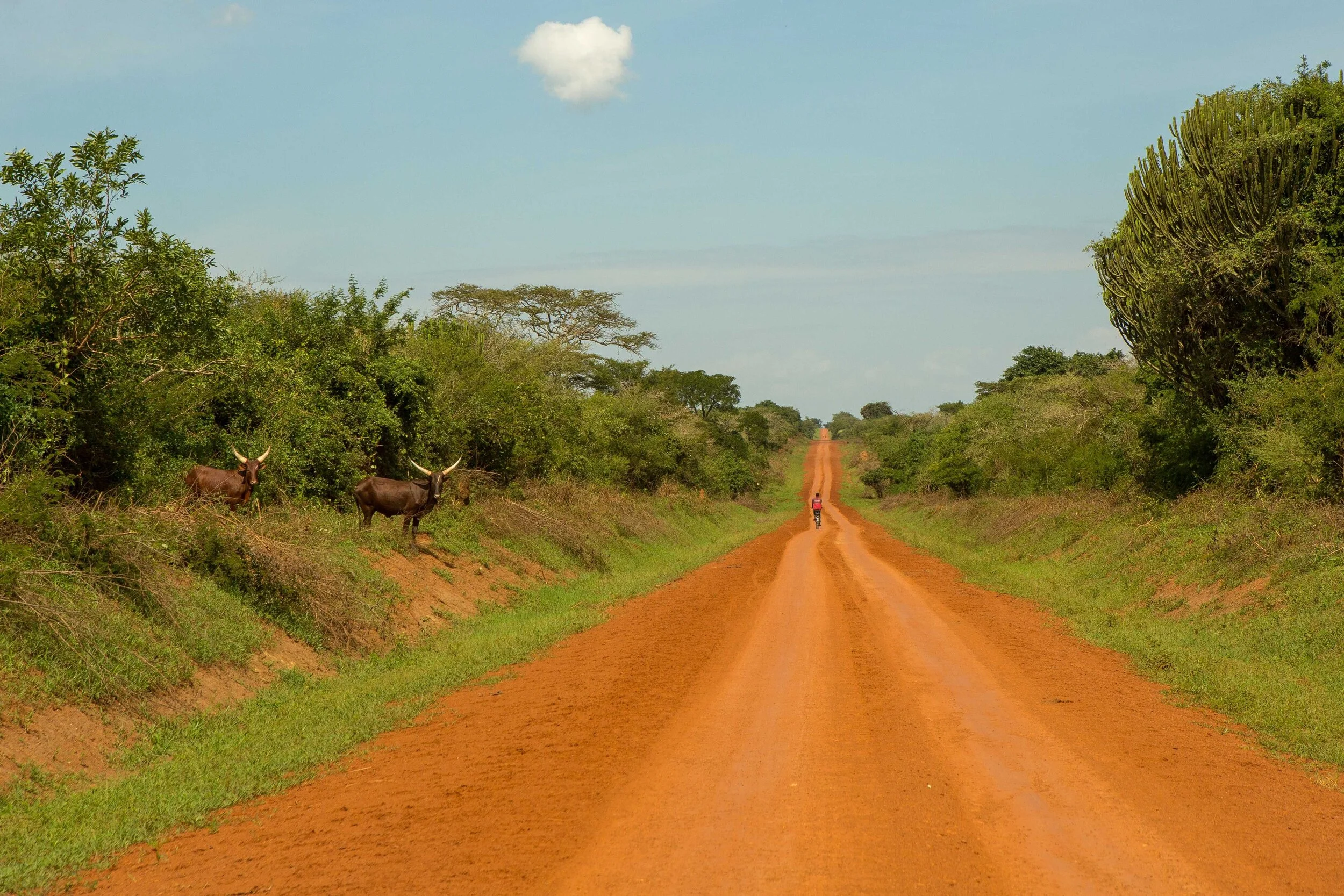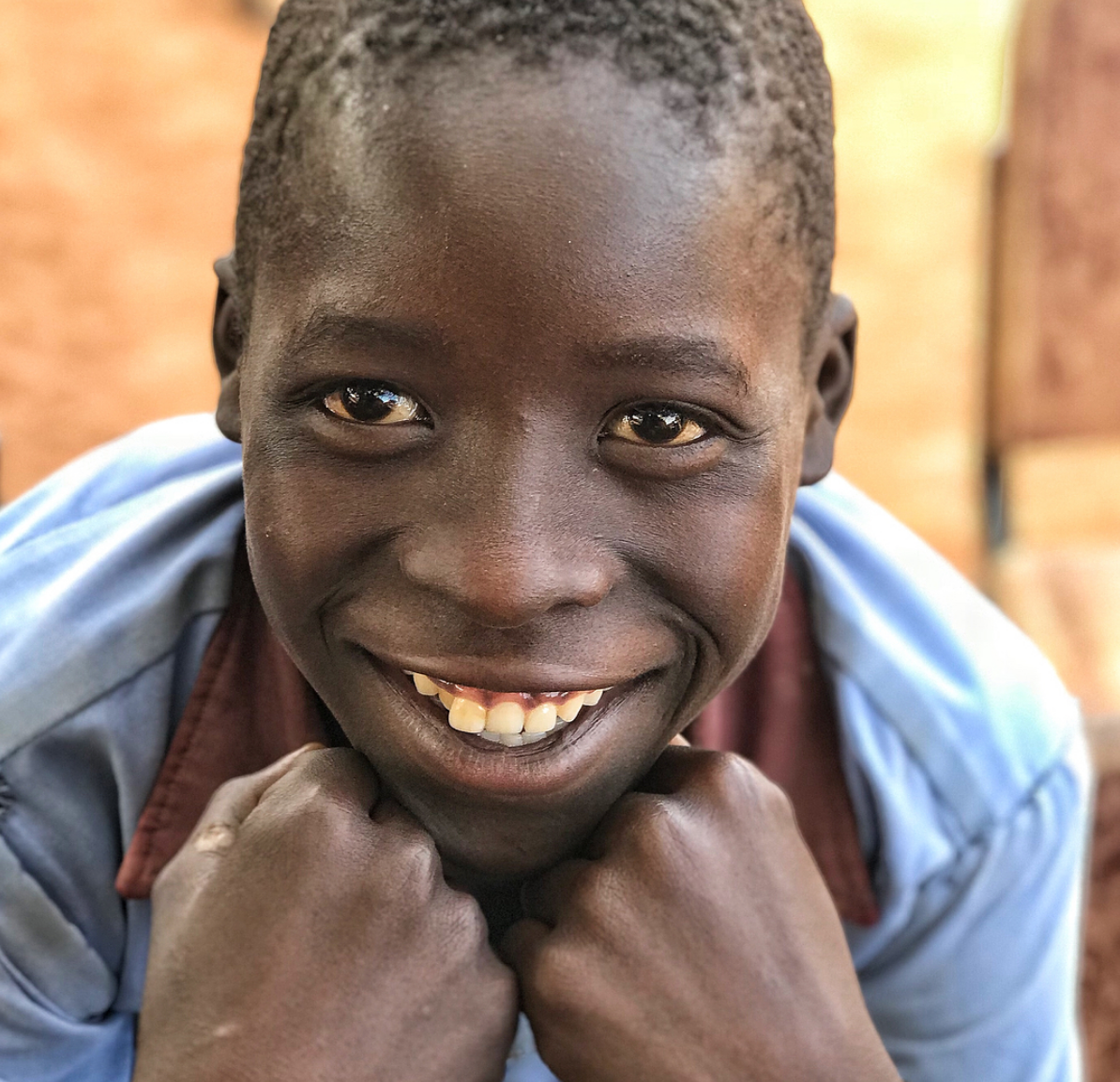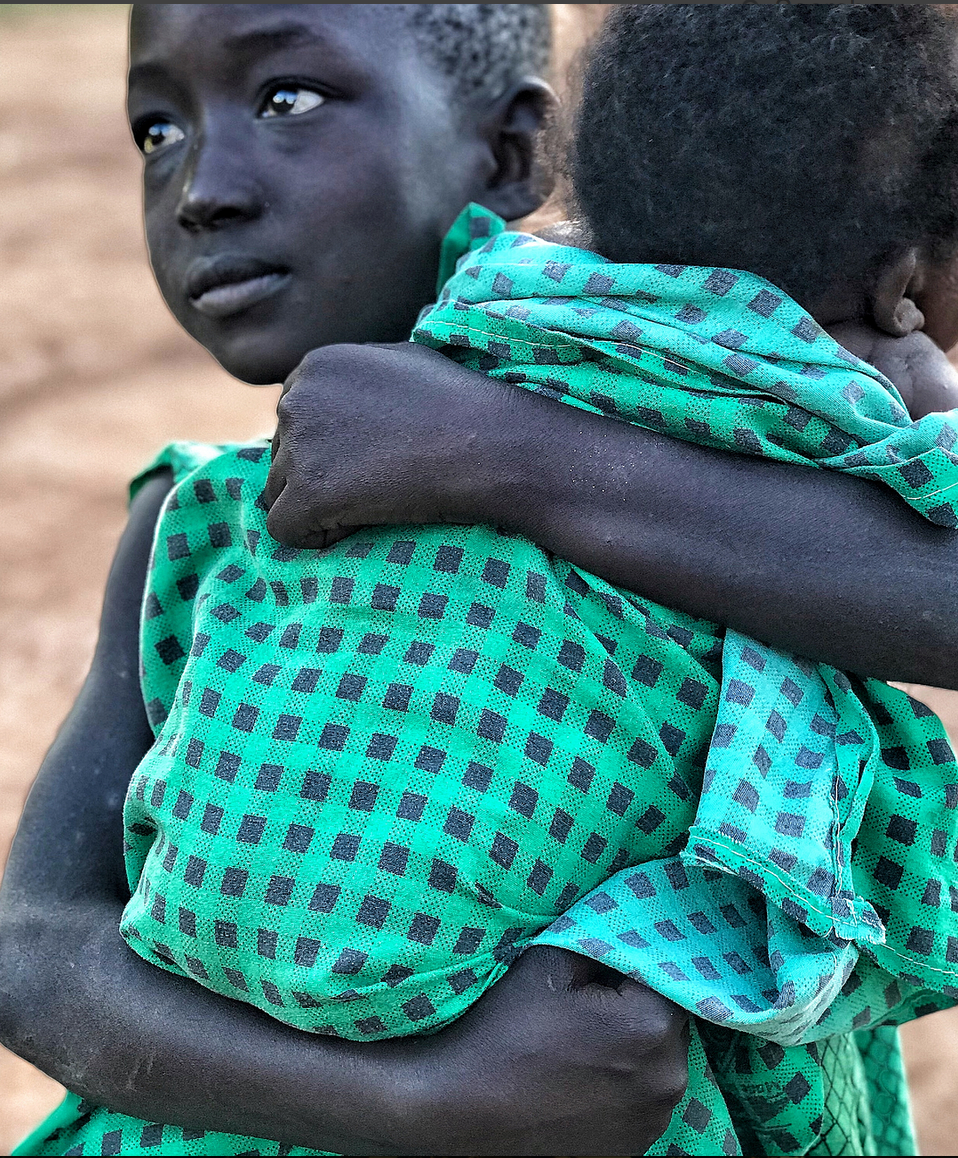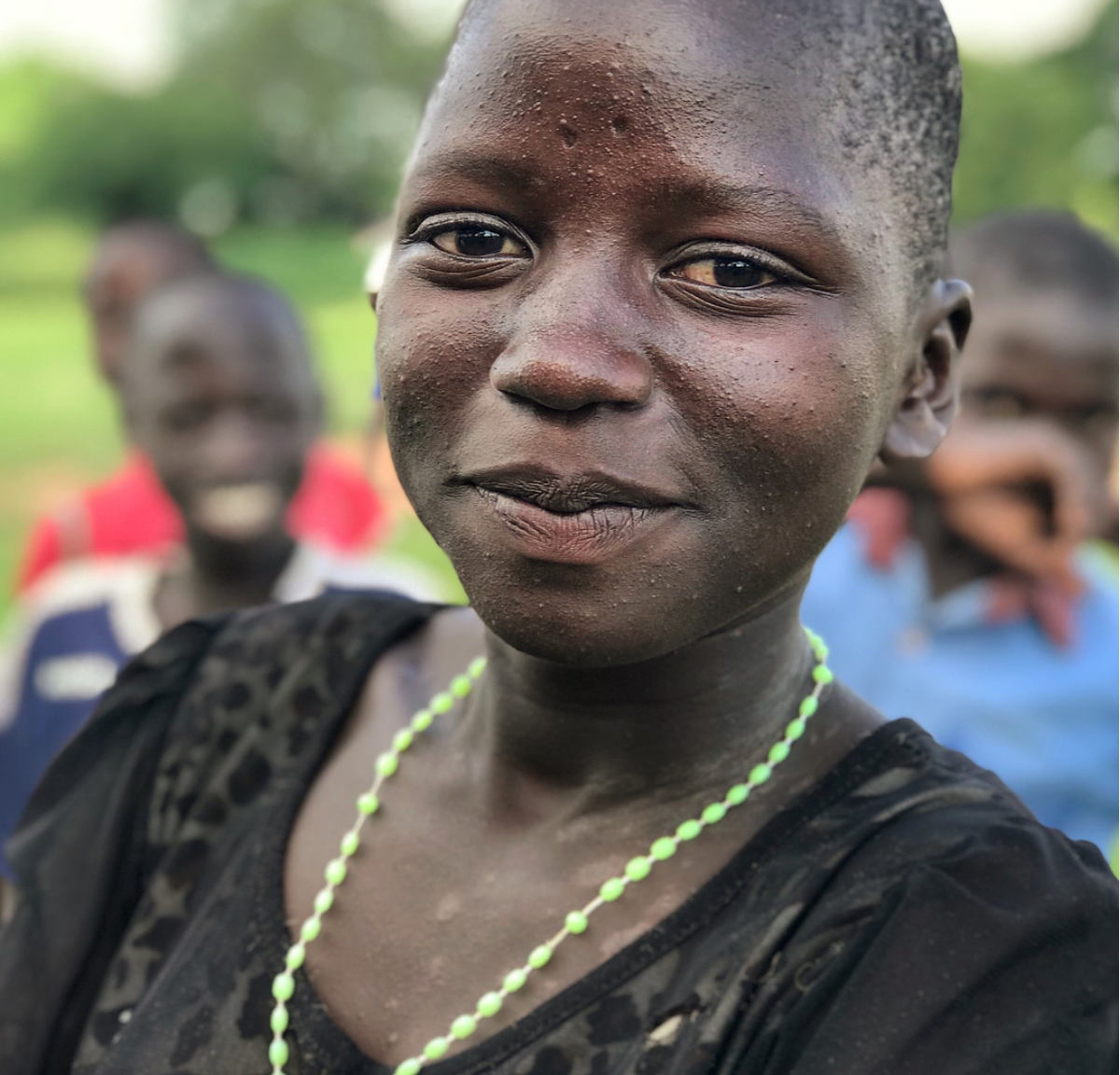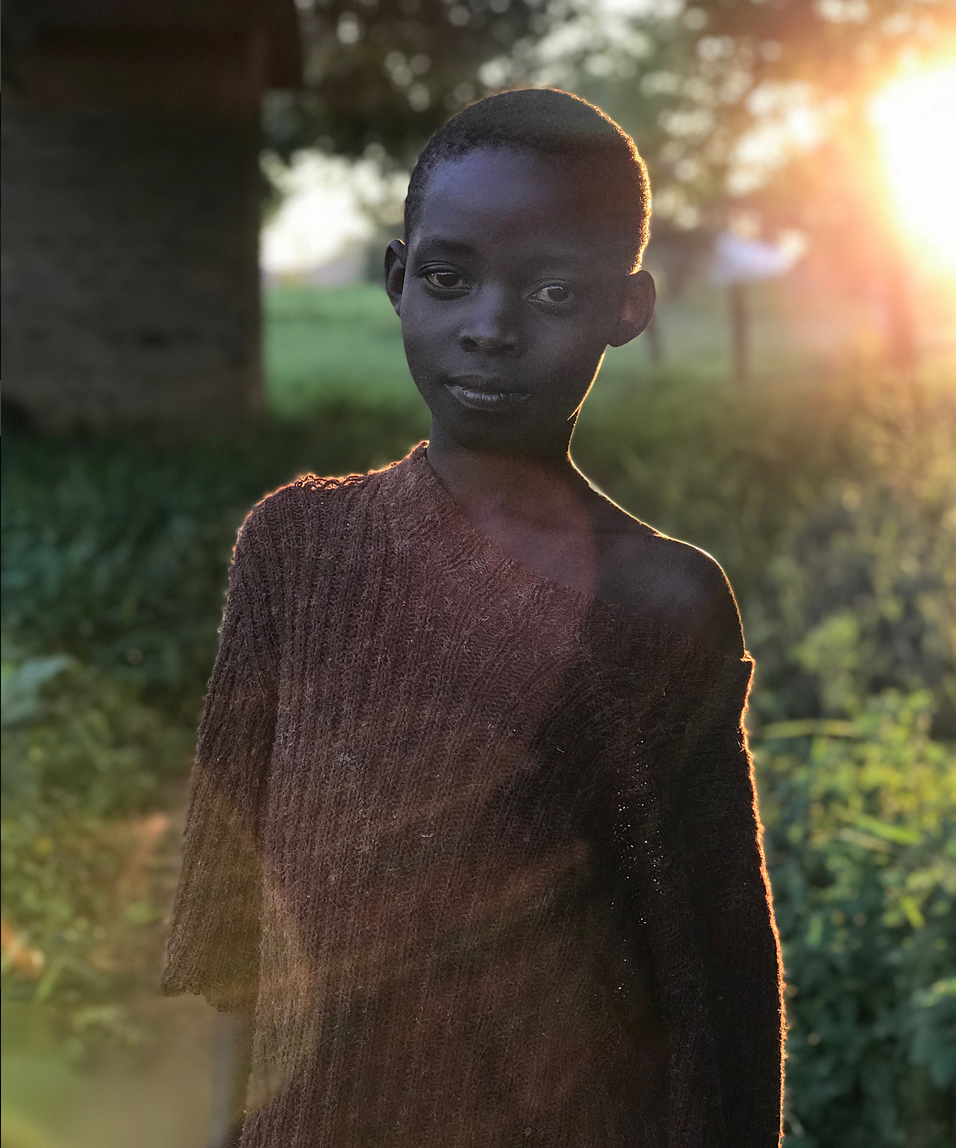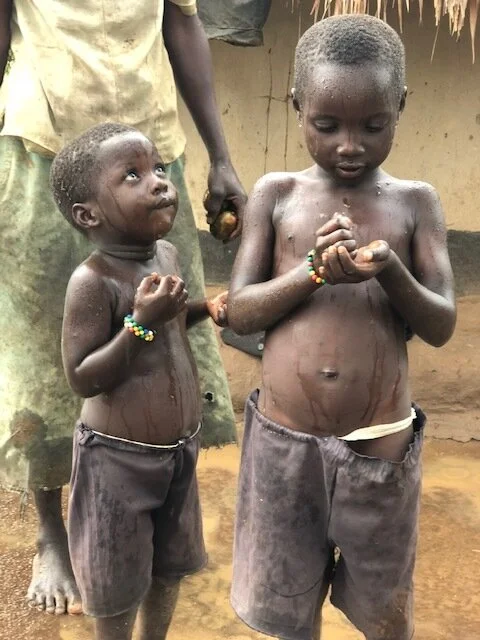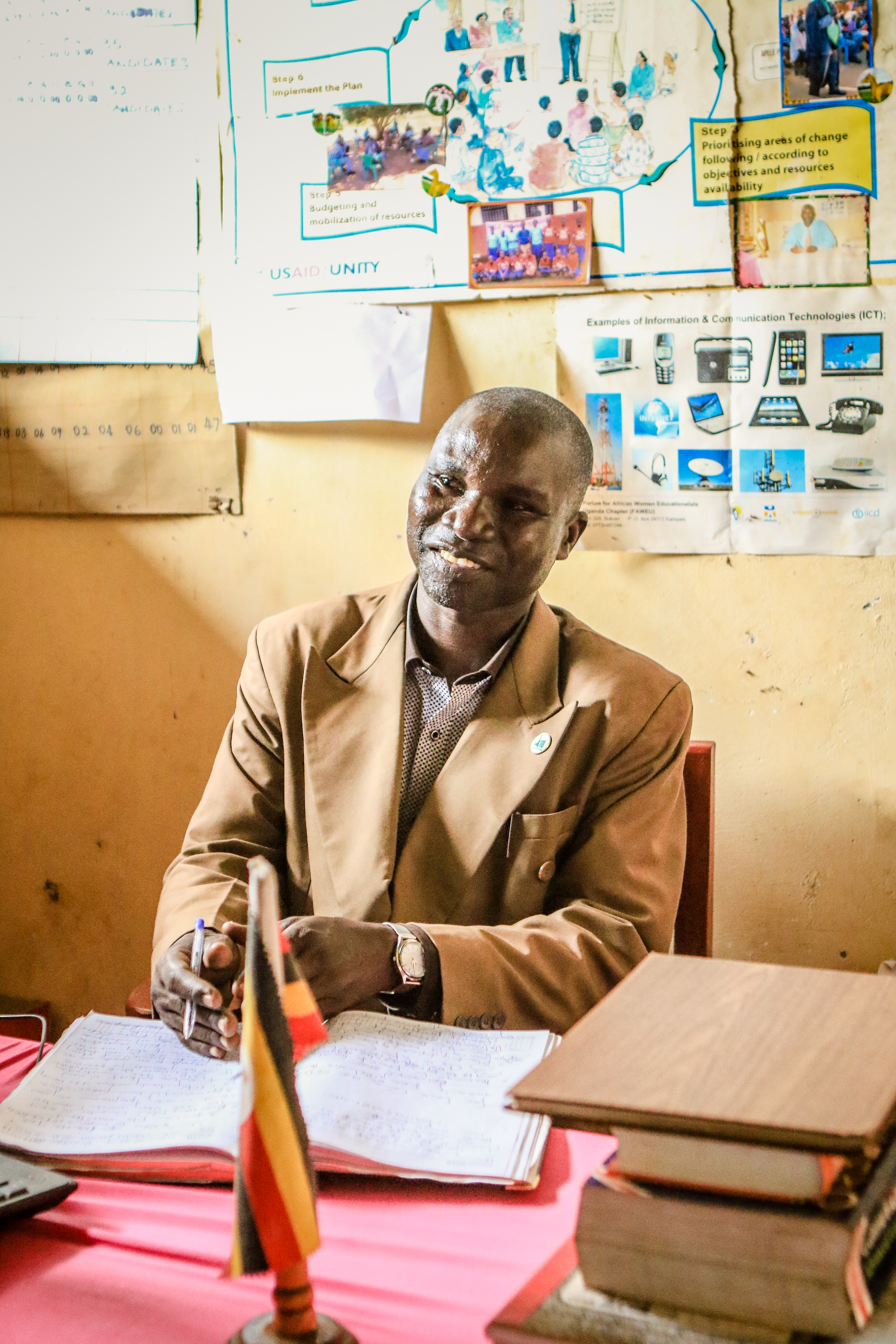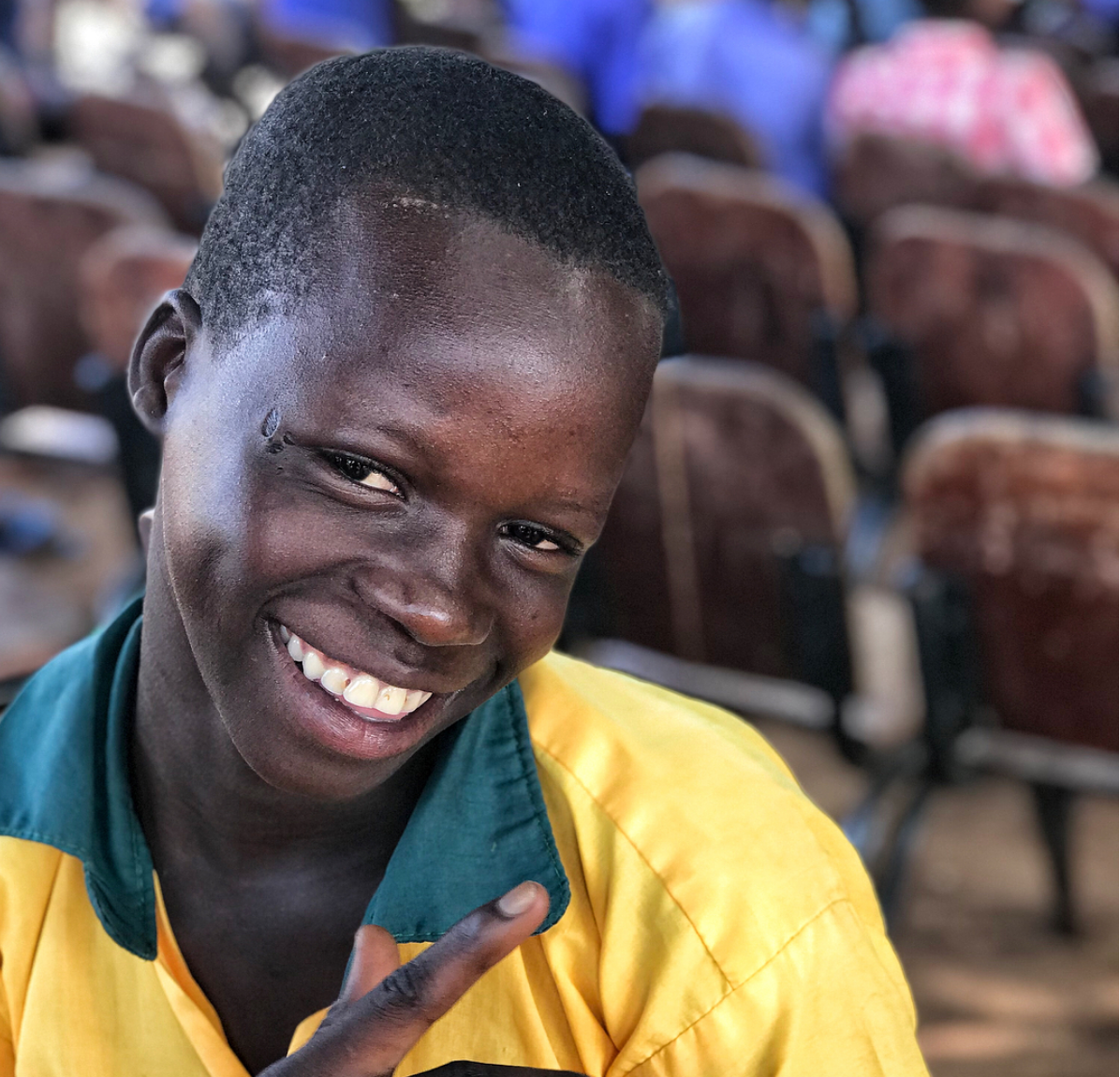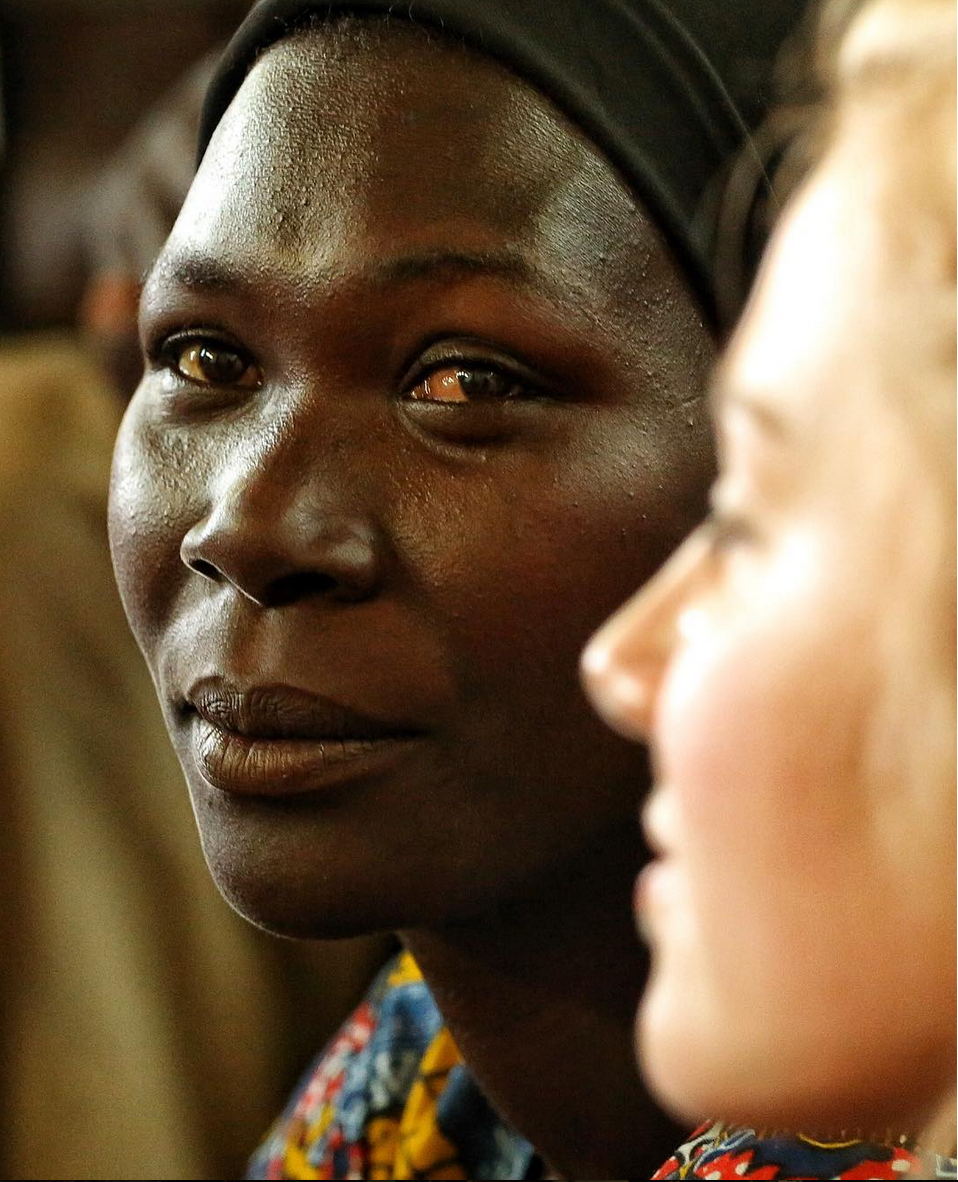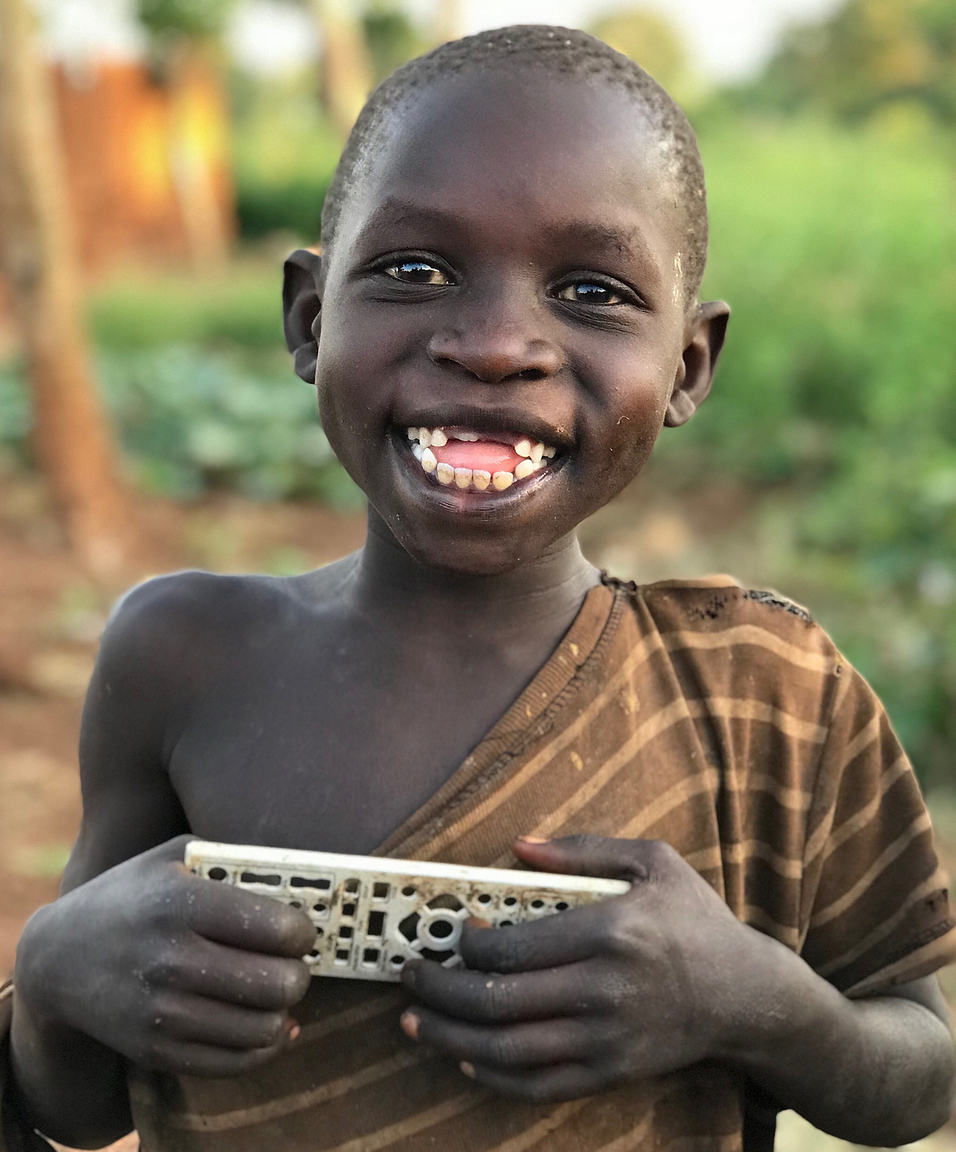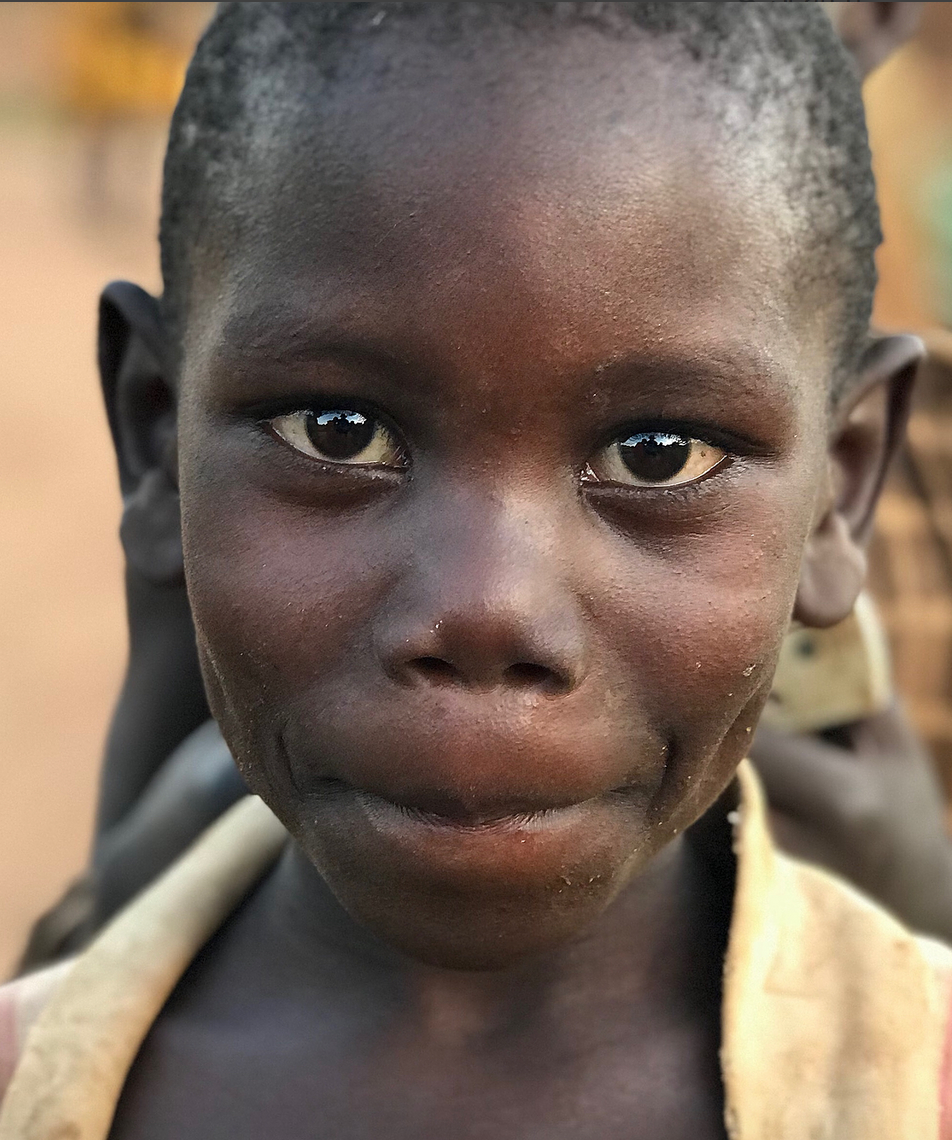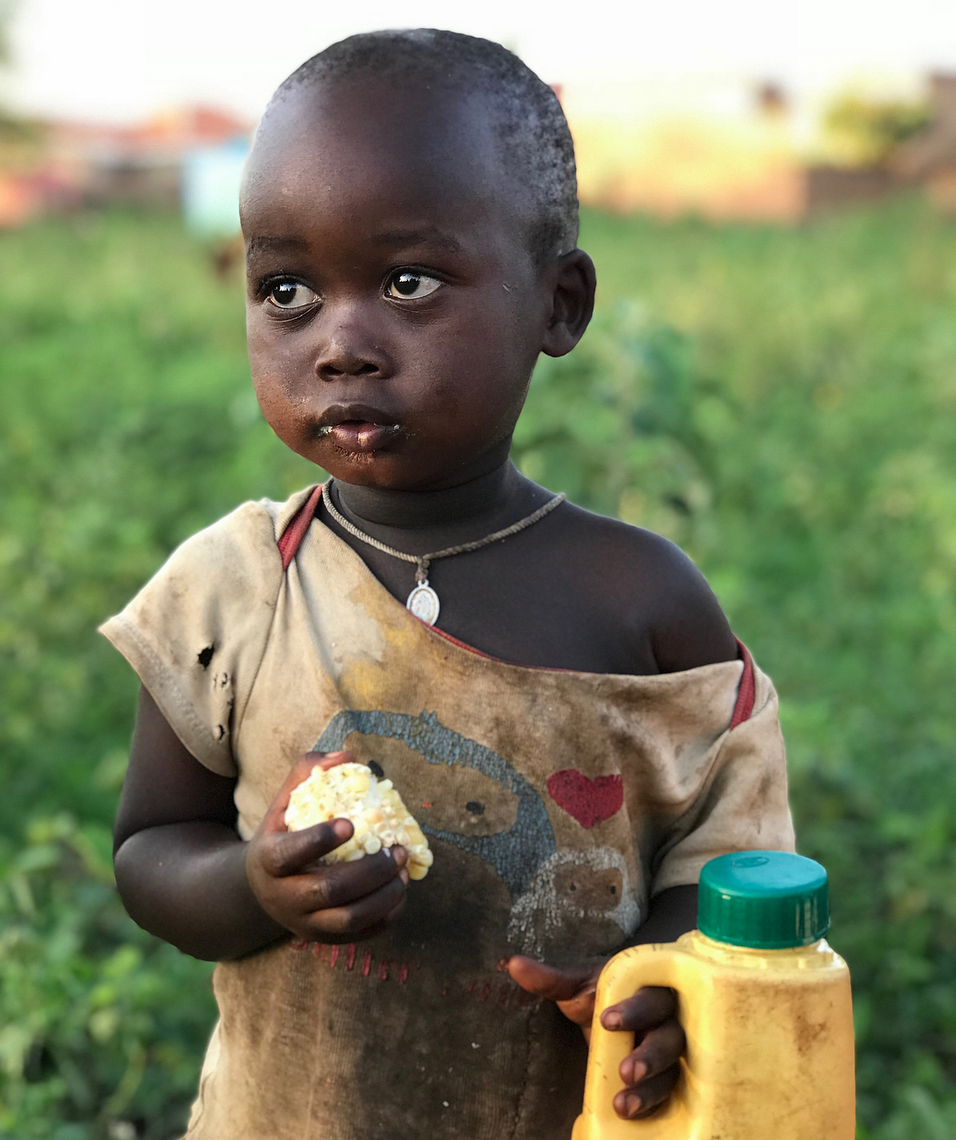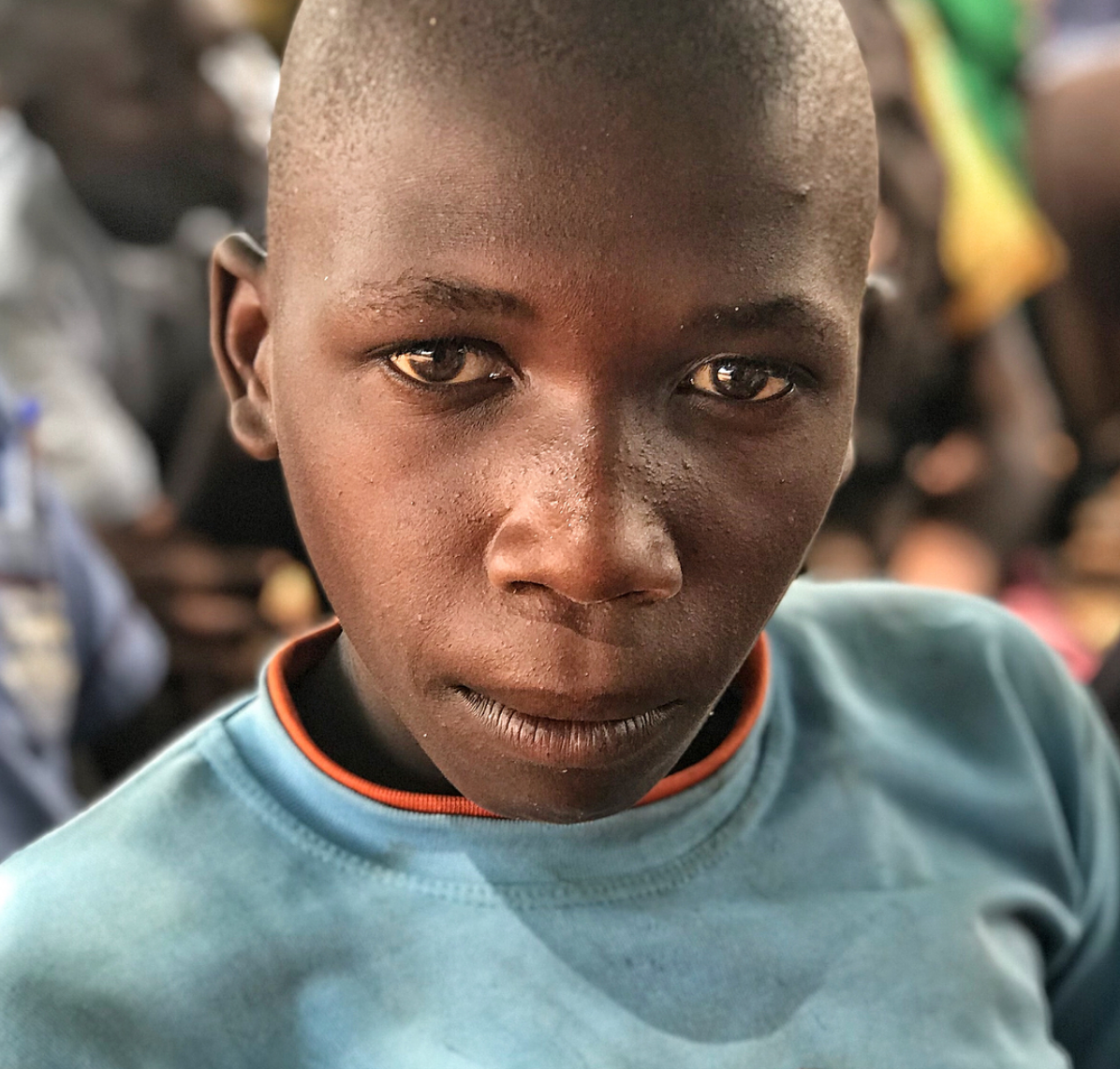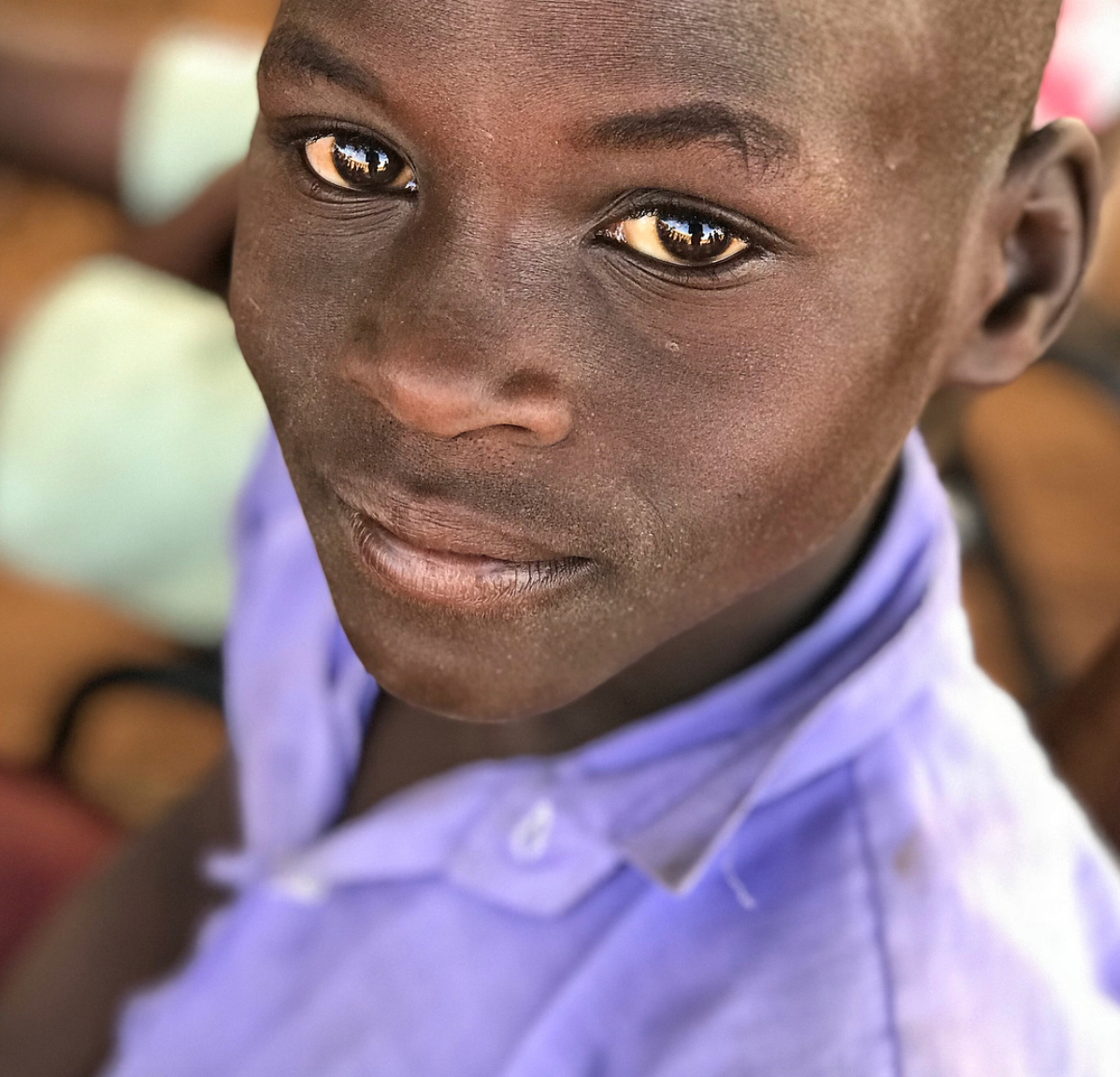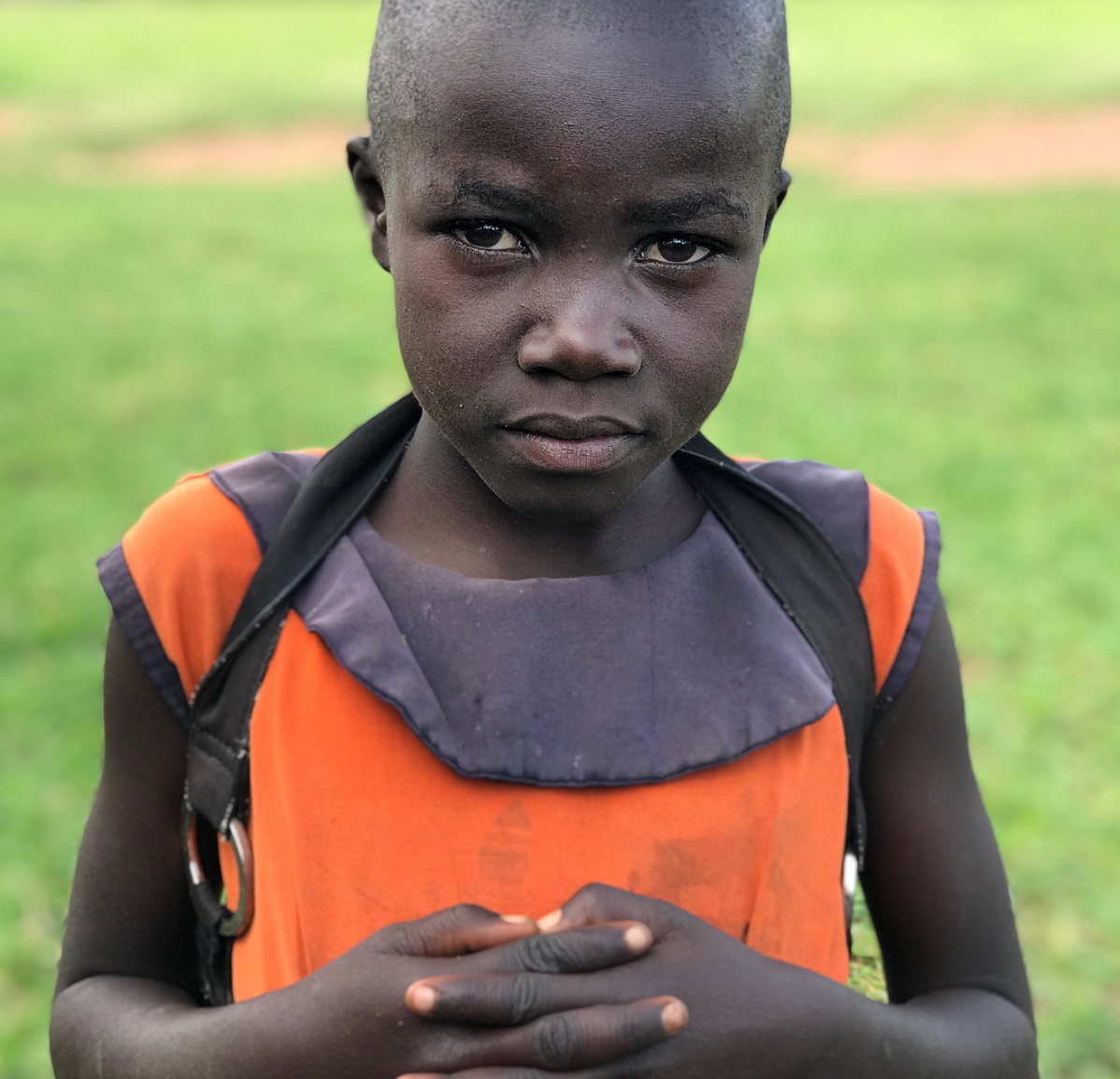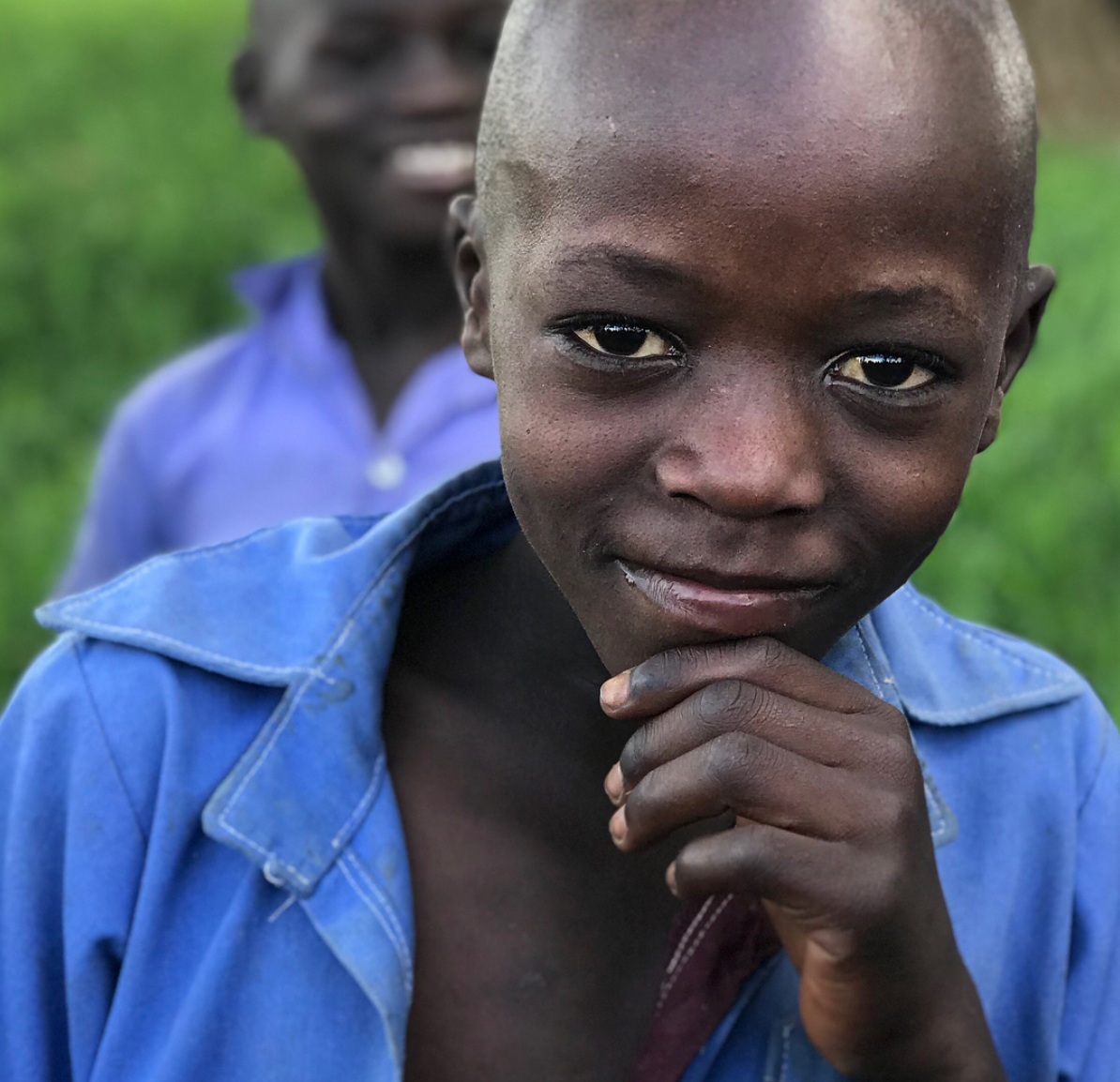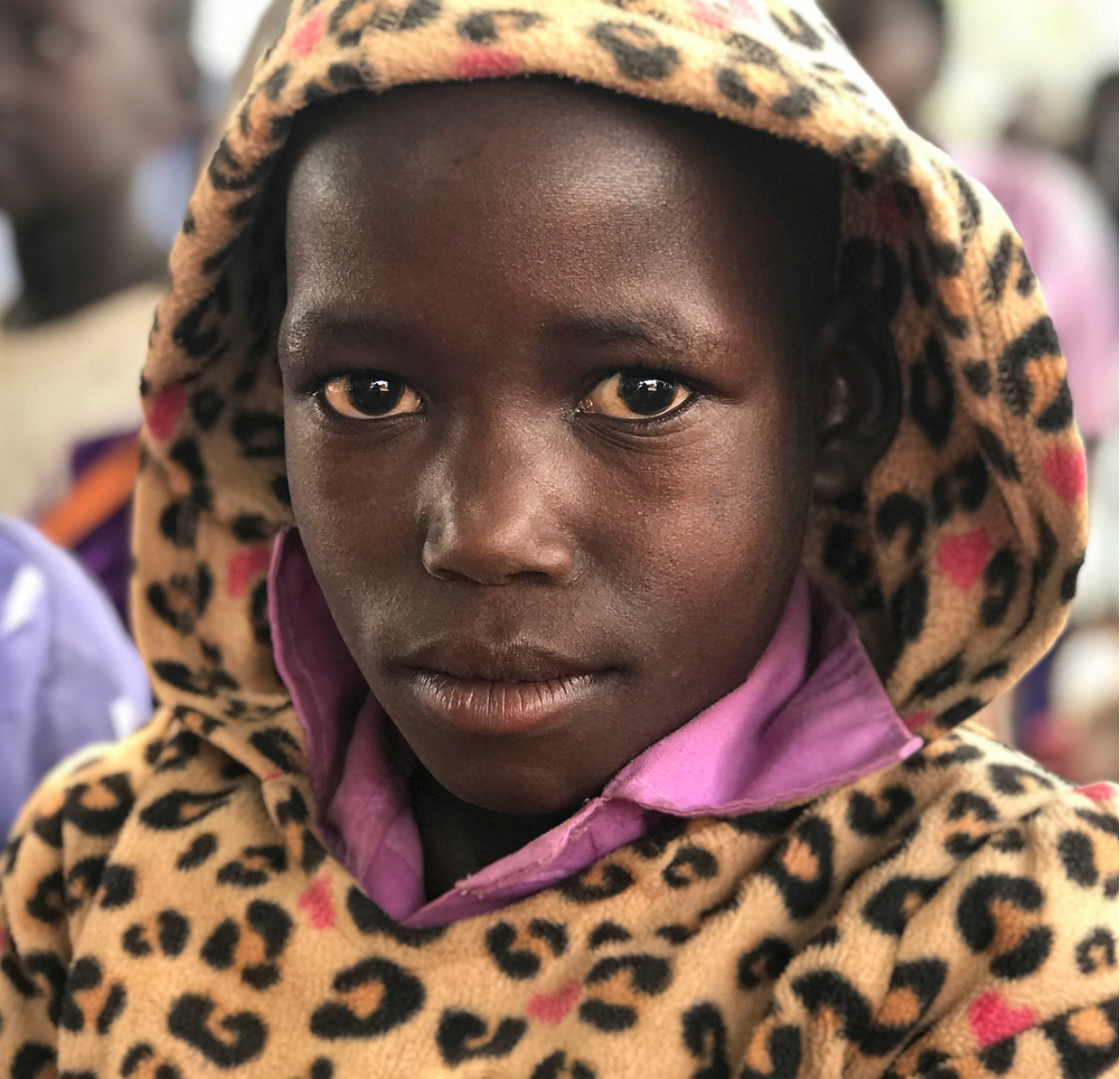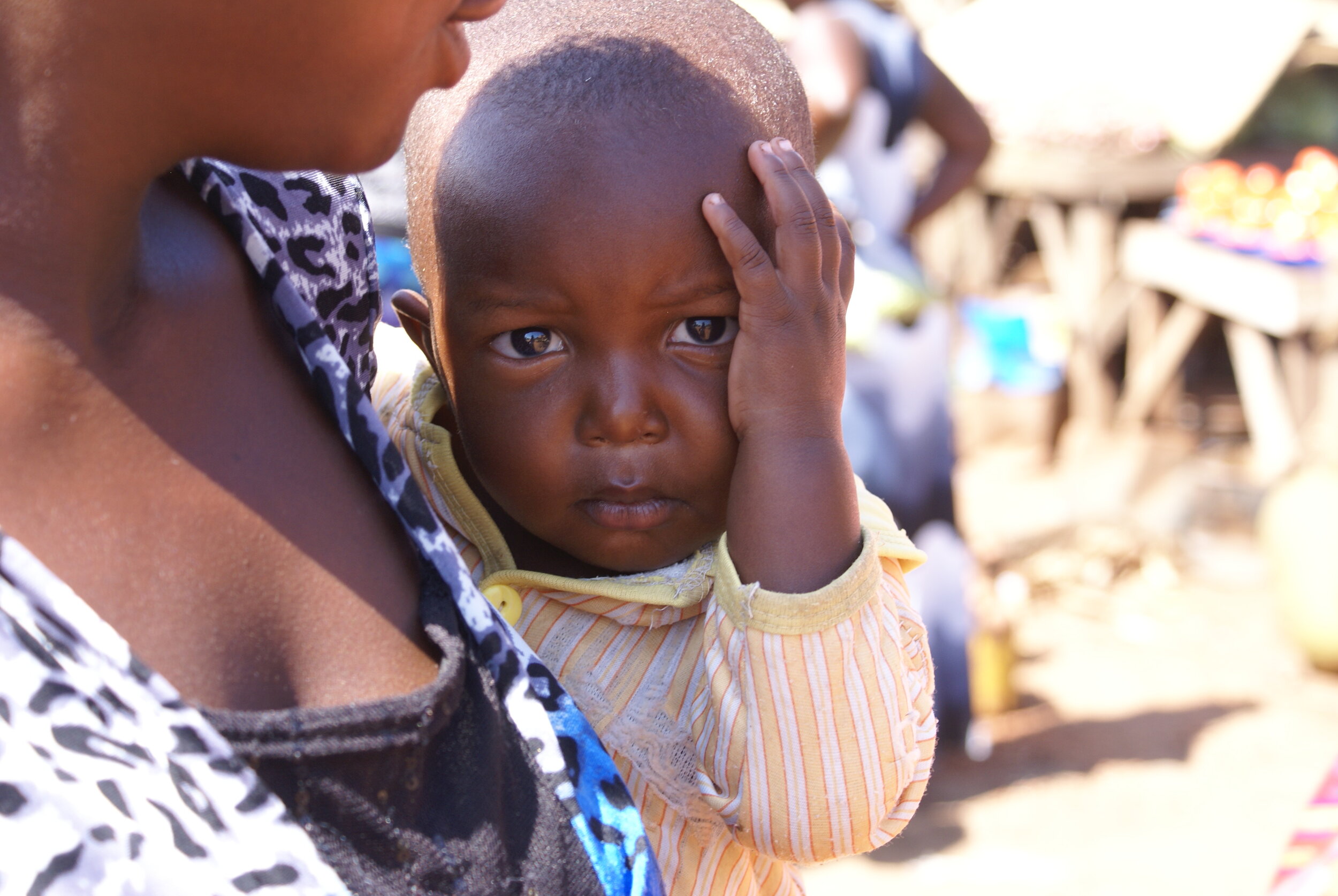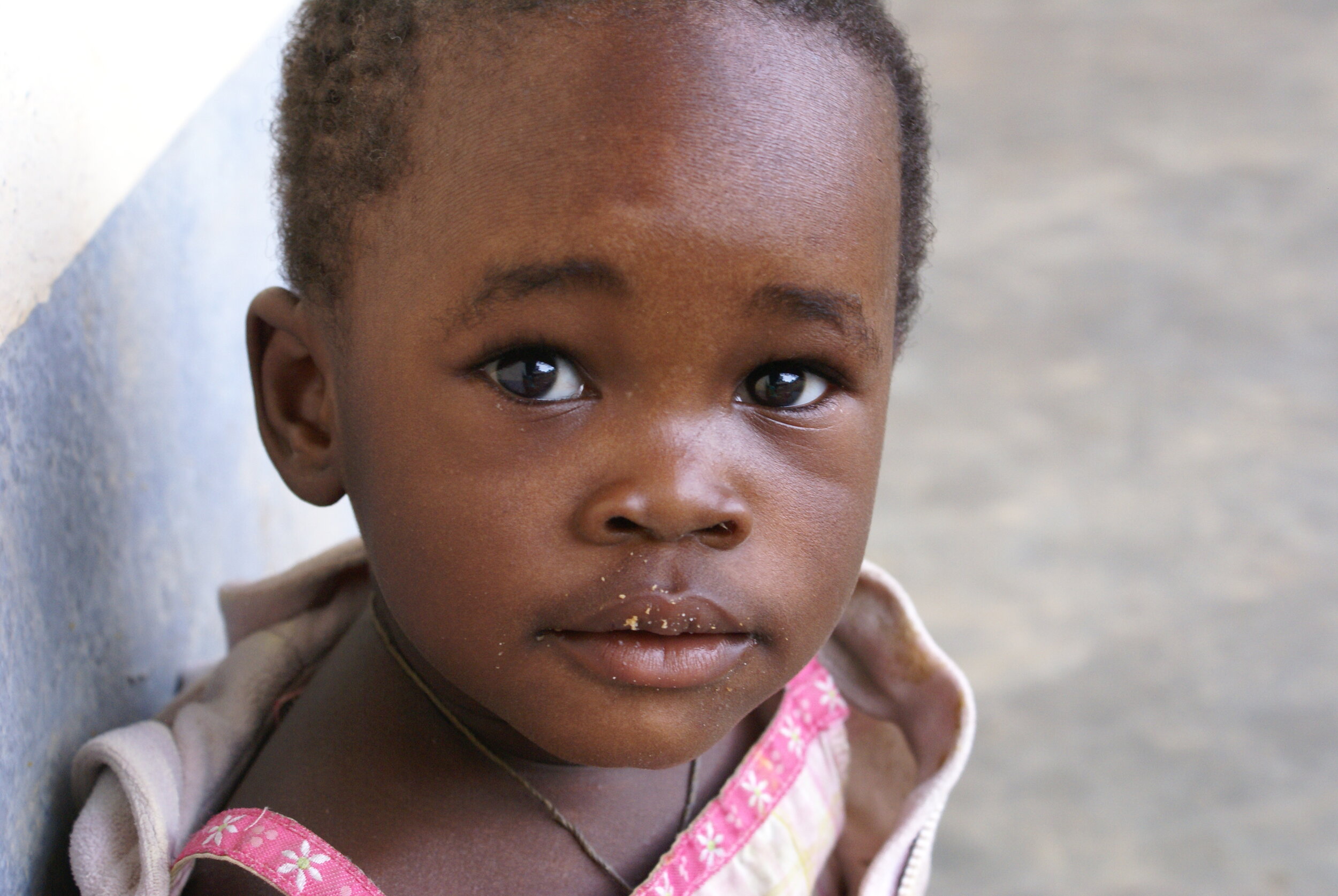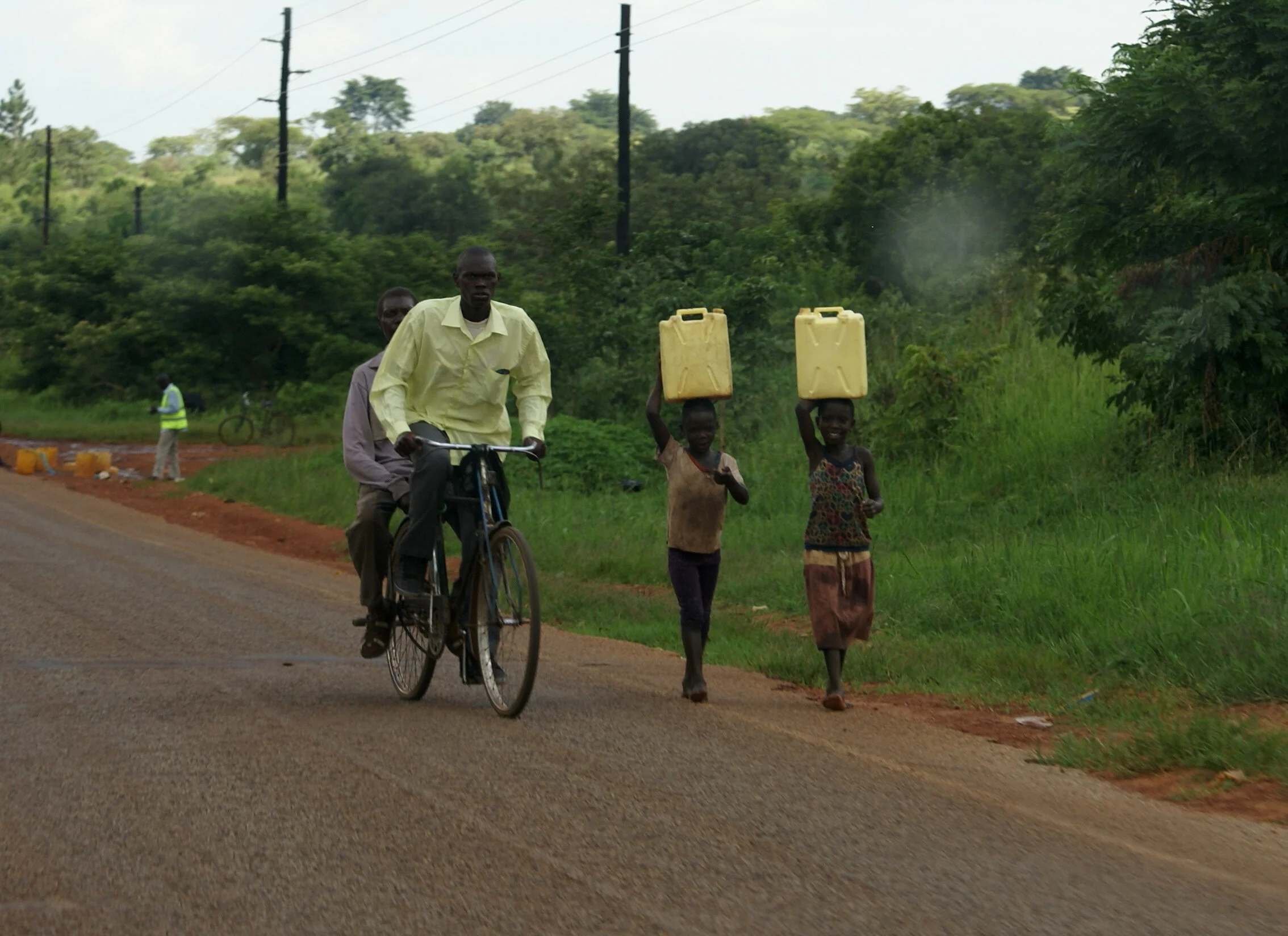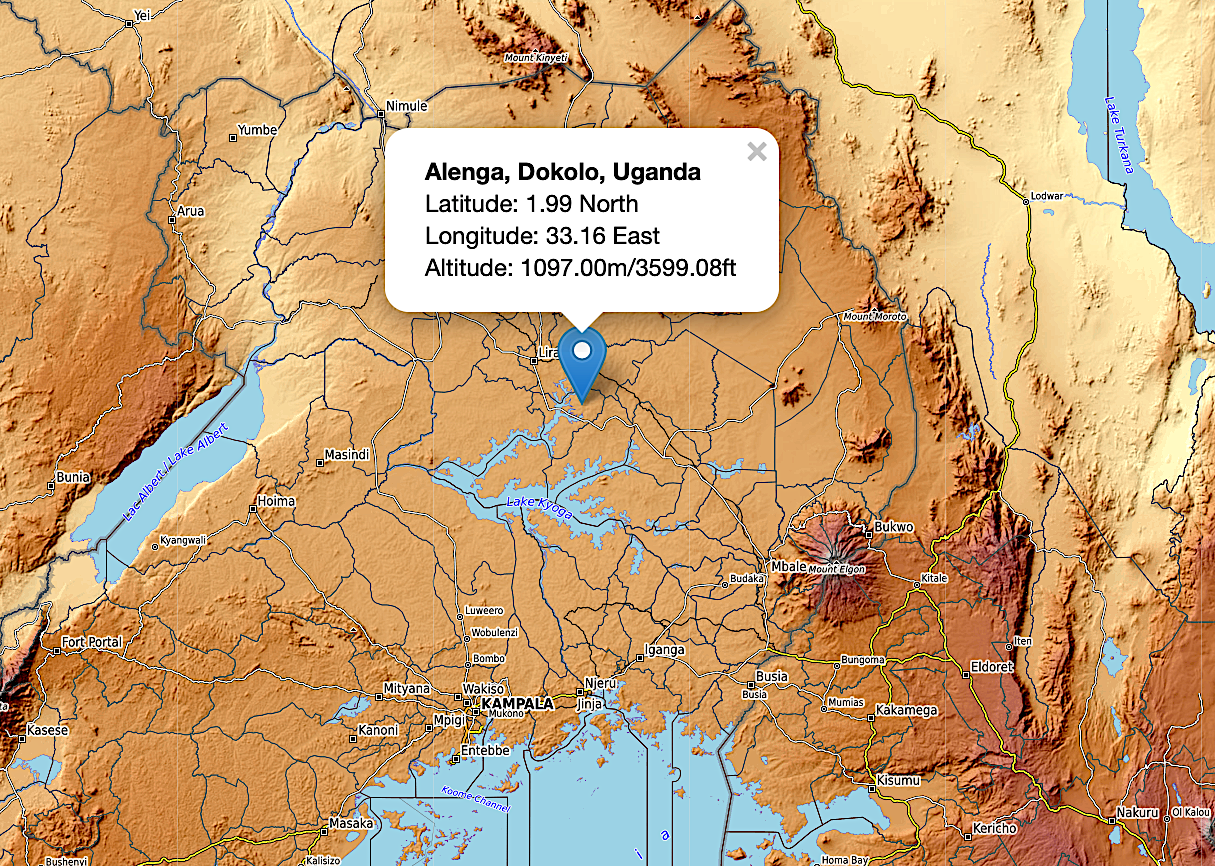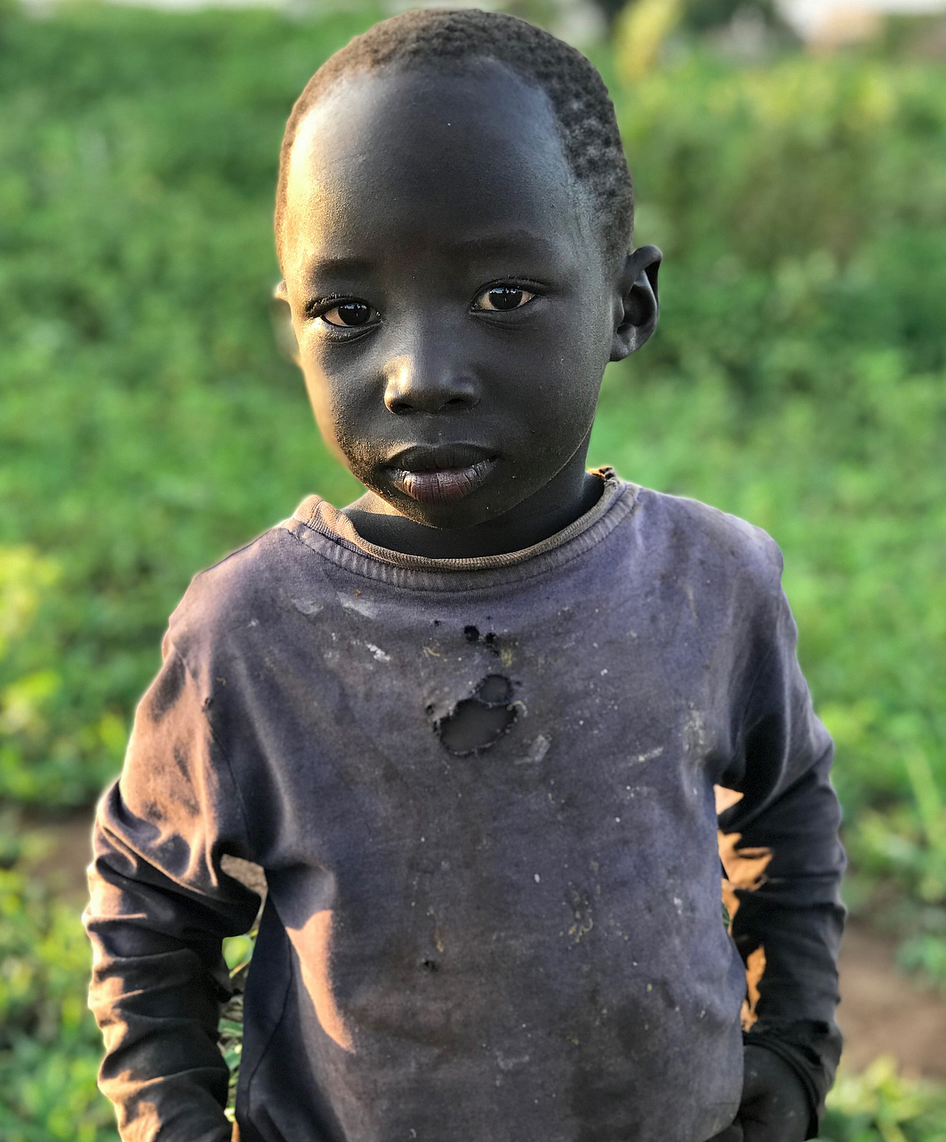alenga, uganda
See the faces of Alenga.
Your journey to Alenga, Uganda begins in Uganda’s capital—Kampala. Sitting on low rolling hills next to the expanse of Lake Victoria, Kampala is a bustling city with cars, motorcycles and pedestrians rushing to and fro. Leaving Kampala can be a jarring experience, but as the congestion of the city is left behind, the noise dissipates to quiet.
From there, you travel five hours north, by van, through the rich land of Uganda, across the glorious Nile by ferry, along dusty red-dirt roads. Ahead of you, flat marshy land with low, wide trees. Above you, a sky filled with lush, heavy clouds.
The land remains open and flat, small stands with neatly stacked fruits and vegetables for sale are found along the road, patches of papyrus reeds and sunflower fields are sprinkled about. Chickens, cows, and goats are seen moseying along the roadside seemingly unnerved by the rare occurrence of a vehicle passing by. Collections of small farms and huts begin to grow in numbers. All the while, there are people walking along, waving as the cars pass by, often times seen carrying or transporting yellow canisters filled with water - often contaminated with bacteria causing waterborne diseases. There are no big signs to specify your arrival to Alenga, but soon schools, churches, small businesses, open air-markets are seen in the distance and the feeling of community begins to rise from the tall grass.
Alenga is located in the northern region of Uganda in the Apac District. There are approximately 100,000 people living in this remote village. There are 59 chapels and 58 schools. Although English is the primary language of Uganda, and taught in schools; the native dialect of Lango is most often spoken in Alenga. Most who live here are subsistence farmers, followed by fisherman, some herders, some small business owners, some teachers, many look for any trade/work they can find to support their families. Visitors, though present on occasion, are not common. Always welcomed and celebrated, it brings the people of Alenga great joy to see visitors enjoying their hospitality; which often times means, they go without so their guests can have.
Alenga is a special place with great peace. Its people are filled with gratitude and wisdom while living in the midst of misery and great struggles. Living in poverty means limited access to education. Approximately 50% of the children go to school; only 25% make it through to P7, which is the equivalent to 7th grade; with even fewer going on to Secondary school. Despite the fact that government-owned primary schools are free in Uganda, parents must still pay for school uniforms and supplies, which they cannot do, so many children stay home to help with fetching water, caring for younger siblings, and working in the fields. The majority of people living in Apac district are young - 56% are under 18 years old - 29% are 8 years-old or younger; only 3.6% are 65+. With an Education, these children have a better chance of learning sustainable ways to break the cycle of poverty - to gaining self-worth and dignity. With an education comes hope. Fr. Stanislas Atipoupou - affectionately known as Fr. Stan - is a Comboni Missionary Priest who has been been the pastor of Alenga Catholic Parish since 2006. He shepherds to ALL - no matter what religion or tribe, Fr. Stan’s mission is to BE LOVE … to put love-into-action for all people. Everything Fr. Stan creates and envisions furthers self-independence. He empowers; rather than enables. He invites everyone to “Come to Alenga,” and meet his people. You might go to Alenga thinking you’re going to help those in need, and you will; but you will find that it is you, who has received the greatest gift and given the greatest gift - LOVE.
